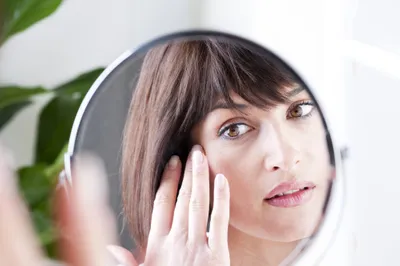While the old adage “too much of a good thing” might be adept—too little of a certain nutrient or food group can also be unhealthy.
Take fat for instance; your body, and especially your organs, do require a certain daily amount to function properly. So if you’re still riding the fat-free diet bandwagon, consider incorporating health fats into your diet in the form of fatty fish, raw nuts, olive oil, avocado, nut butters, and more to ensure you’re eating enough fat.
The following eight cues indicate that you need more fat in your diet…
1. You’re Get-Up-and-Go Has Got-Up-and-Left
If you’re a healthy weight and consider your level of fitness satisfactory, research published in the National Institutes of Health indicate that a sudden lull in energy that has you dragging your butt after a brief period of exercise may indicate you’re not eating enough fat. During physical exertion the body takes energy from carbohydrates first followed by fat stores.
2. You Have Difficulty Focusing
If you pride yourself on eliminating fat from your carb- and protein-rich diet—you may actually be unable to concentrate because you’re always hungry. Calories are twice as high in fatty foods vs. carbs and proteins, and if you’re eliminating fat from your diet, chances are you may not be getting enough calories in your daily diet.
3. You’re Constantly Hungry
We touched on this in the last slide, but fats help you feel full longer, which means if you incorporate healthy sources of fat (omega 3s and omega 6s) into every meal, they’ll take longer to digest (compared to proteins and carbs) and keep you satiated until your next meal.
4. You’re Anxious in Crowds
A research on mice, conducted by the American Psychological Association, found that rodents exposed to inadequate amounts of omega-3 fatty acids then exposed to noise freaked out in crowd settings. Contrary, those who ate adequate amounts of omega-3s stayed calm in crowded environments full of sensory stimuli.
5. Your Period is MIA
For women, fat intake can mess with your monthly period. Fat is the primary method that the body regulates hormones, so if you’re skipping or missing your monthly flow entirely, talk to your doctor about healthy diet and fat intake. Likewise, studies published in the Journal of Clinical Endocrinology & Metabolism indicate early onset menstruation at a younger age is linked to female children with higher body-mass indexes.
6. You’re Memory is Zapped
Research studies from the University of Alabama at Birmingham (UAB) found that older adults who consume a high-fat diet—full of healthy nuts, avocado, fish, and olive oil—protect their memory and cognitive function for much longer as they age. So if you notice memory slips, try eating a Mediterranean style diet to improve and protect mental retention.
7. You’re Down in the Dumps
Epidemiological research shows that dietary imbalances can largely effect mood, leading to blues and depression. For instance, a low intake of essential omega-6 and omega-3 fatty acids can cause hormonal and mood fluctuations (i.e., increased anxiety, irritability, and depression). Ensure you’re eating healthy fats throughout the week—especially a few servings of fatty fish each week, which are linked to lower rates of depression and help stabilize mood.
8. Your Skin is Lack Luster
Is your visage less than glowing—maybe dull, dry, flaky, dull, or sullen? This could indicate a lack of dietary fat according to researchers at University of Chicago. Sure, greasy, fatty fast food can cause blemishes and whiteheads, but healthy fats aid the absorption of fat-soluble vitamins in other foods and keep your skin moist, even, and blemish and wrinkle free.











